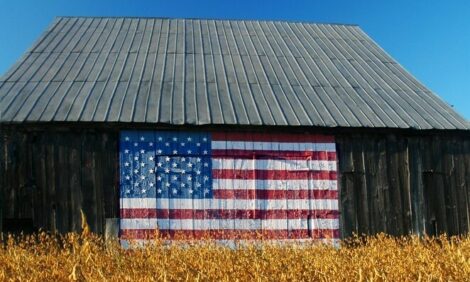



Weather Delays, Brexit Uncertainty Continue to Disrupt Scotland’s Harvest
SCOTLAND, UK - For many Scottish growers, a week of continuous rain has brought harvest to a halt and the volume of rain makes accessing fields with heavy harvesting equipment challenging.A developing problem is the ability to move crops off farm that have already been harvested. Growers report a slowdown in uplift of grain for delivery to processors and a poor market for feed grain. The result is on-farm stores needing to be cleared either for more grain or for livestock when they come in for the winter.
Making disposals more difficult for some is that the wet weather is causing grain quality issues as sprouting and germination, leading to rejections. Modern, very tight specifications can be hard to achieve in poor weather conditions. Downgraded grain from quality markets needs to find a home and when it does the price is lower with additional drying charges pushing returns below cost of production.
The knock-on effect of rejections is even more feed grain building up on farms, exacerbating storage and marketing issues.
NFU Scotland has written to key organisations in the supply chain – Agricultural Industries Confederation (AIC); Scottish Agricultural Organisation Society (SAOS); Maltsters’ Association of Great Britain (MAGB) and Road Haulage Association (RHA) – to consider what can be done to ease the transport storage problems that are building up.
Combinable Crops Chairman Ian Sands, who farms at Balbeggie near Perth said: "The promise of a successful Scottish harvest is being eroded by wet weather and market uncertainty.
"The volume of rain experienced in the past week means getting combines and trailers on to sodden ground to harvest crops is a real challenge that only a prolonged period of dry weather will remedy.
"As a result of the weather, growers are experiencing rejections for grain grown for quality markets because of issues such as sprouting and germination. The knock on from that is a surplus of feed grain on farm, with limited storage and limited demand.
"For feed grain, Brexit uncertainty is a factor in halting a lot of merchant purchases. This is grain that would have been expected to find a ready demand for export but the threat of a ‘no deal’ Brexit; and the potential for tariffs of over £80 per tonne on exports to the EU and zero percent tariffs on imports are significantly undermining market prospects.
"It remains to be seen whether ongoing political wrangling and the possibility of a ‘no deal’ being take off the table provide a floor to the export market in the short term.
"On haulage, there has been a long-standing reduction in hauliers and vehicles suitable to haul grain. Demand for haulage is high and delays at the processors means fewer loads of grain can be shifted per day. Rejections at intake, and grain being returned to farm, exacerbates the pressure on haulage and hauliers.
"Then there is the problem for many farmers that they do not have enough storage, especially for a harvest like this where weather delays have stripped out the harvest gaps between the different crops. Adding to this is the need to find a home for rejected crops without a feed buyer available.
"Price is a huge concern for grain having to be sold on the spot market. Uncontracted and rejected grain, much of which will have required costly drying, will be sold at a loss.
"Growers know there is no ‘silver bullet’ on price but Government must also recognise that, with spot prices down 30 percent or more from last year, a lot of crops will be sold below cost of production.
"To ease the disruption, the supply chain must work together to overcome transport and intake issues and that is why we have written to key stakeholders. Growers can help too by liaising with their merchants and buyers and scheduling haulage to minimise delays and maximise the limited availability to haulage that we have."



